The Angry Red Planet – Ralph Robert Moore
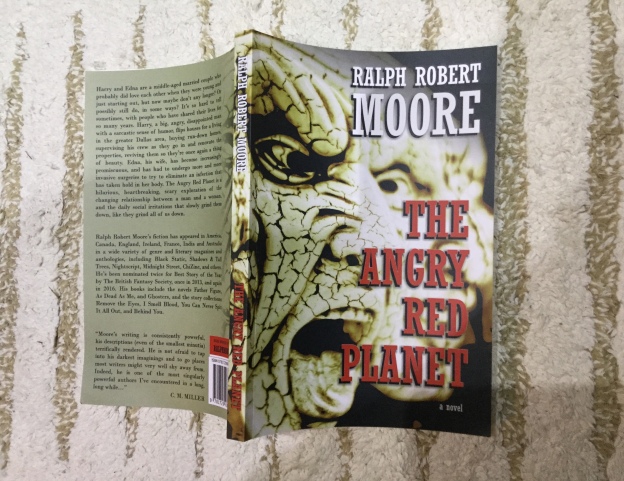
Sentence Publishing 2018
My previous reviews of this author: https://dflewisreviews.wordpress.com/tag/ralph-robert-moore/
When I read this book, my thoughts will appear in the comment stream below…
www.nemonymous.com
Des Lewis - GESTALT REAL-TIME BOOK REVIEWS
A FEARLESS FAITH IN FICTION — THE PASSION OF THE READING MOMENT CRYSTALLISED — Empirical literary critiques from 2008 as based on purchased books.

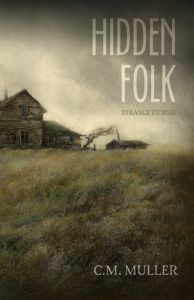
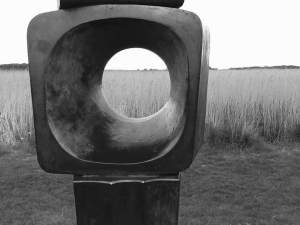
 ABSCONSA LATERNA
ABSCONSA LATERNA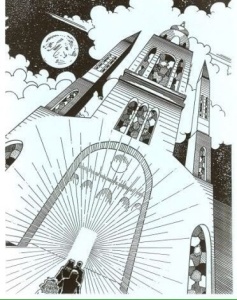 DIARY OF AN ILLNESS
DIARY OF AN ILLNESS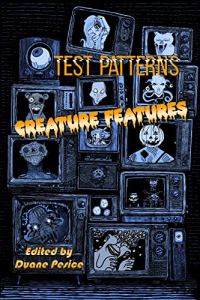
 PRETTY IN THE DARK Erica Ruppert
PRETTY IN THE DARK Erica Ruppert
Chapter 1
“You look angry.”
I always get angry at the pitiless prose of this author, taking me places, almost against my will, where most of me does not want to go. Dragged there with compelling autochange. Perhaps my own fallibilities, fears and desires are played out as if with a personally bespoke magicking by fiction. Here in a hospital under potential surgical scrutiny, wife and self as an internally competing ‘sugary’ singularity from within a frail body’s onanism in stereo. With patchwork desires in your life’s angry gestalt now awoken here in this chapter by a beestorm, an obstructive tree and the viability of vicariousness. And an unexpected inheritance of a department-store-in-aspic.
Pages 29 – 42
“The bone structure at the front of Mr. Lewis’s skull was completely caved in. Did you break your hand?”
I somehow took delight in Mr Lewis’s full name being Brandon Lewis (current Chairman of the Conservative (Tory) Party) – and that this book eschews AnGEr manAGEment and has already conveyed that rage often comes with age. And at my particular age of outed outrage, it is time to admit that 70 is the prime of life, or at least its cusp. Me and Trump alike.
“When I was a kid, I didn’t have imaginary friends. I had imaginary enemies.”
“Edna looked down at her lap. In a sad voice she said, ‘I miss my left shin. I wonder where it is right now.’”
Disleggingly poignant. The relationship of Harry and Edna complexifies, with not only more surgical or sugary cuts, but also with relationship motivations and expectations thwarted or enhanced in interface with other characters, some aggressive like police force interrogators, plumbers for one’s own faucet at home or the force’s toilet where the interrogation takes place, other characters more disarmingly amenable like the supermarket tillster with lovely hair air-dryable, or the lawyer. I am dragged along by the scruff of my literacy. I know this is naughty stuff, often amusingly grotesque, and, as I say, poignantly off the wall. Raw bodily togetherness with or without qualms. Likeable stuff that I expected to like. Unlike garlic. The raw house renovations, notwithstanding. The tree house as a sort of thematic triage?
“There are women hiding everywhere in this house.”
Houses as women, that is? Harry’s ‘flip houses’. You know, I am beginning to see life in an even more frightful light when reading this novel that I genuinely predict will become more famous than it currently is. The Harry – Edna relationship as a strange yet believable love-hate congeries, and the seedy or no hope men (“I choose not to eat something with eyes”) towards whom she shows a wheelchair’s telltale skidmarks across the lawn. The anger of queuing. (Queue in UK, a line to snort in USA). TV courts. Carpal tunnel syndrome. Curb appeal (kerb in UK.) The art of buying, renovating and selling a human-riven property, where one of its chandeliers had once served as a noose. “Fuck! What circle of Hell am I in?” Even the privacy fence… the first time I have ever noticed Mars and Paris have visually assonant names. Travel. Travertine tiles, et al.
Pages 87 – 103
“‘Actually, it’s the theme from Psycho.’
‘Where are we on the Hollandaise?’”
Just as an experiment to test whether you had the same reaction as me with regard to the contiguity in the text of ‘Psycho’ and ‘Hollandaise’, did your eye briefly misread the latter as ‘Hellraiser’? Meanwhile, this book has, for me, become a necessary catharsis for our times, speaking to me like the Don Henley song does to one of the characters, or like when, as a boy, I could walk beyond each block lost or unlost. Harry is now visited by a character you will not be able to forget, try as you might! It is Sebastian, Edna’s father, a widower with a young wife. The scene in the restaurant with him is surely due to become a favourite literary lollipop of all time. Food preparation or consumption as default dysfunction. And fruit sculpture. Digging solipsistically into the ice cream just for the best bits at the bottom of the carton. Transcending or harnessing a billionaire’s desire – during a property makeover – to “line up all the doorways in the house, north-south and east-west, so when you look through a doorway, you can see…” all the way to Mars? Whatever.
“Your Dad really does love you.”
From the erstwhile Eraserhead in the restaurant, to Edna’s mother’s “art boxes” with landscapes within (cf Harry’s property projects with Paul the billionaire), misogyny roams like a passive-aggressive creature through the backstory memories of Sebastian, deriding feminine ambitions in now dead wife and daughter. Sebastian reminds me of Trump. This novel has now started to swell out within my skull unbidden. The only solution is to stop reading it? But can I stop reading it? Meanwhile, I am beginning to like, even love, Harry! His bespoke care of Edna, her medical appointments, etc. I never knew that would happen! Mixed emotions only literature’s skill can reach?
Pages 117 – 133
“Of course, at a hospital, recognizing someone returning isn’t a joyful thing.”
This book is like Testing Patterns of Sudoku, a process that enrages and absorbs at the same time, like adding and subtracting things at the same time, too. Poignancy and pent-up irony, and a cult of self-pride second to none, negated by shame, as I grow to Sudokusise Harry and Edna, and also realise that Trump is sucked into a pattern of Sebastian good and proper. At least I hope so now! A revelation of self, as seen in others. Also the kill and cure nature of hospitals, and their frustrating waits for no obvious reason. Waiting for that missing number of deaths or near deaths elsewhere in the building.
“She seemed dubious.”
There seems to be an increased degree of doubt there. “She was dubious”, or “She seemed certain”, or “ She was certain”, at different stages of doubt or non-doubt. Subtraction vying with addition, limbs and emotions expendable, or to be renewed in aggregates of multiplying and division in various parts of the mind and body, trying to adjust to the new environment of self, as people come and go in your life, parts of self that go missing, too, as you compensate with bespoke contraptions fictional and/or real. Some intensely moving moments here, with personal bodily implications, as we lead to a significant subtraction in Harry’s and Edna’s life, and its angry math and aftermath. Looking suddenly at someone dead in a coffin makes them look smaller-than-life, I found, with a squashed grotesquery of a grim grin. Counting the years you had with them as part of a once projected eternity, and whether now to use 911 to resolve its end calculation. My thoughts, not necessarily the book’s thoughts, but thoughts powerfully stirred in me by the book.
Pages 155 – 171
“His voice could reach this level of . . . rage mixed with helplessness, his face bright red…”
Red as the planet towards which this book is now being ‘flipped’ or ‘double-supremed’ – compelling details of the nature of anger, as if, I wonder, it is an inherited department store of discrete products all under one roof. Only equalled by the compelling details of plans to navigate towards that very planet with which this book is labelled, the mix of crew starting to team-build in fascinating, sometimes passive-aggressive, interaction, in a Mexican restaurant after the dress rehearsal for Harry at a lower flight, with all the sensations of passenger aeroplane travel. Food and emotions, meanwhile, are, as often with this author, inextricable. A good marriage being the unself-conscious readiness to finish off each other’s sandwiches. Later, though. “…the stirrings of lust in his stomach. Odd, that that’s where the physical effect of lust always originates, like the first warning sign of diarrhea.”
191 pages in total. Now read them all. Wish there had been 911 of them at least. The Big Brother Mars House as a mock up for outer space, including water usage, now smells fruity like one of Wanda’s fruit sculptures. Was it Wanda, though, I wonder. Sebastian’s wife. ‘I don’t care’ written on the back of her coat. Enough to make a baby want to commit suicide. We reach powerful apotheosis of Harry’s severely impulsive God of War and Wrath inside him. Thinking about it, this book is seriously even better than Philip Wrath, it really is. Meanwhile, lost count of all the differently coloured arms stretching out from between the prison bars. A reader is better than a cop by being able to witness what happens real-time instead of being called in later to investigate.
“All that was left in that space now was a crater of gum, with the moist dark bone of the drilled-down tooth at the bottom of the crater.”
end